Strictly Personal
Tinubu, his ministers and the governors, By Rotimi Fasan
Published
9 months agoon
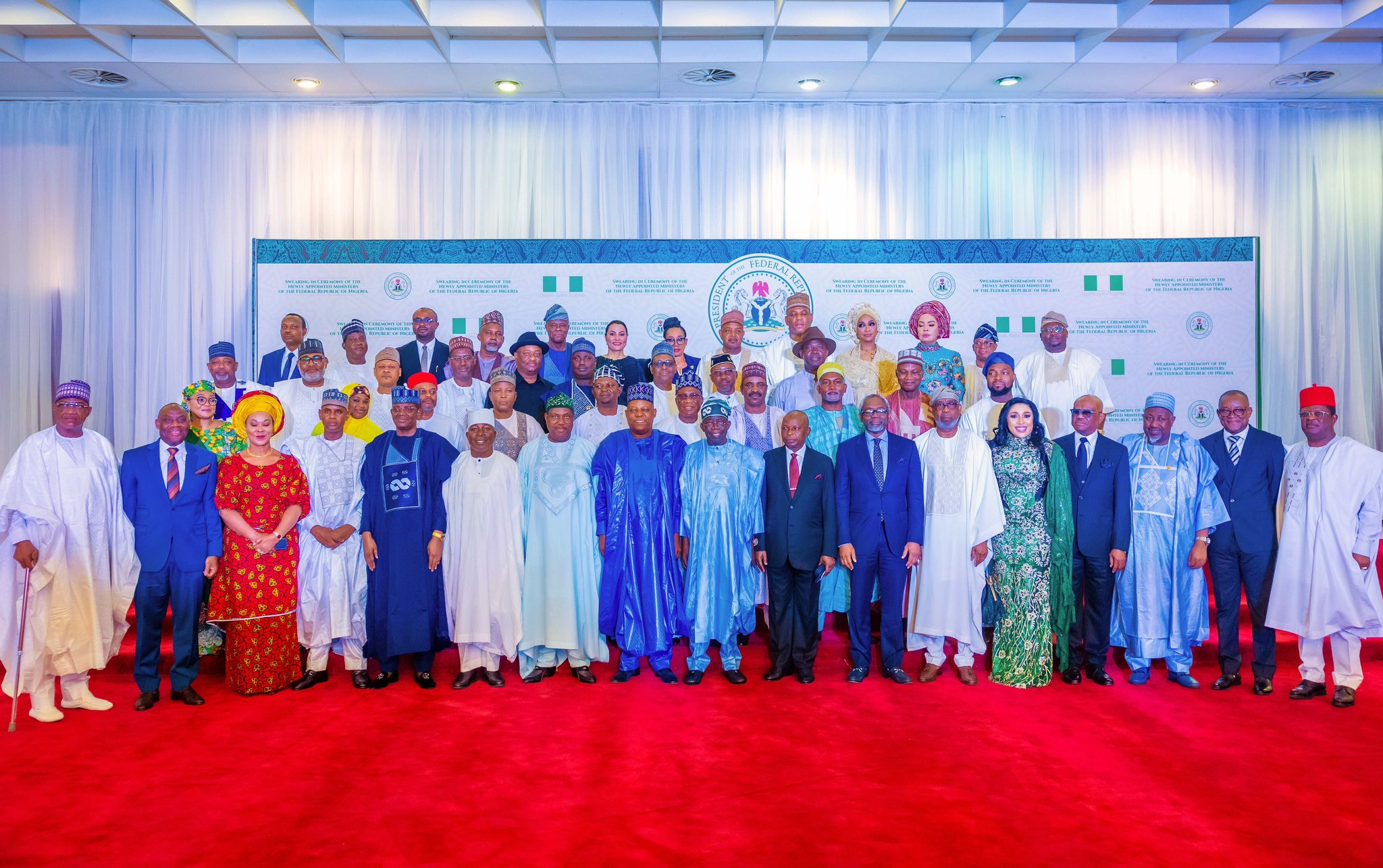
President Bola Tinubu on Monday 21st August swore into office 45 ministers after an eleventh-hour reassignment of portfolios to four of them. Gboyega Oyetola of the Ministry of Transport, Abubakar Momoh of the Ministry of Youth and Bunmi Tunji-Ojo of the Ministry of Marine and Blue Economy were respectively reassigned to the Ministry of Marine and Blue Economy, Ministry of Niger Delta Development and Ministry of Interior. Two other ministers of State in the oil and gas sector were moved to the newly-named Federal Ministry of Petroleum Resources.
Senator Heineken Lokpobiri is now Minister of State (Oil), Petroleum Resources while Ekperipe Ekpo is Minister of State (Gas), Petroleum Resources. The Federal Ministry of Environment and Ecological Management is now to be called the Federal Ministry of Environment as a result of the latest changes. With this, the president is left with only three ministries to fill. The nominees for the ministries could not scale Senate clearance as a result of adverse security reports on them. One of these three is a former governor of Kaduna State, Nasir el-Rufai, who has allegedly withdrawn his nomination and opted to pursue doctoral studies in the Netherlands.
After about two and half months without ministers, President Tinubu now has a cabinet that is almost ready to “hit the ground running”, to use an expression that has been much-abused recently. The Tinubu-led administration had come under severe criticism and mocking jibes as a result of the delay in constituting a cabinet. This, many Nigerians thought, undermined claims that the president was ready for governance. The fact that he also had to wait for more than a week after naming the ministers-designate without portfolios attached to their names was also another matter of criticism.
These apparent delays in the machinery of governance, compounded as they were by the annoying silence in the implementation of policies that were meant to ameliorate the harsh effect of the removal of oil subsidy, increased worries in some quarters that the new administration might have run out of steam so early in the day. It gave impetus to the criticisms from concerned Nigerians, including many in the opposition who would not let any opportunity slip off before attacking the president, to further call him out and label him a warmonger to deflect attention from his failing policies at home with a war with Niger.
It would not matter to these critics that President Tinubu as Chair of the Economic Community of West African States, ECOWAS, that is spearheading the opposition to the Nigerien junta was only executing his remit in light of his position in the body. The inauguration of a cabinet does not mean that the administration is out of the woods yet. There is still a lot to do beyond ministerial appointments that have suffered reversals in the designation of portfolios.
The Tinubu administration has not been shy about reversing itself on policies that have not gone down well with Nigerians. While its supporters don’t see what the problem is about that, others in the opposition believe it’s a sign of a disaster foretold from when Tinubu was declared president. One should say that the government had better make these reversals even when they are not necessarily to be cheered, than to pretend that all is well and continue down the wrong road in a bid not to be criticised. For the sake of the dire times we are in at present, every error in policy-making and execution should be corrected without delay.
The last administration that was this quick to make reversals in policy was the Umaru Yar’Adua government. That administration almost turned policy reversals (not necessarily those it made itself) into a policy in its own right, upending some of the major policies of the Olusegun Obasanjo administration and earning in its wake the ire of the retired General that piggy-backed Yar’Adua into Aso Villa in 2007. Obasanjo’s policies on deregulation/privatisation, including sale of the refineries, as well as the introduction of Value Added Tax, VAT, and monetisation of assets were reversed in short order by President Yar’Adua.
He faulted the election (mostly managed and supervised by President Obasanjo) that brought him into office and set up the Muhammed Uwais Commission. By the time, he started going after the likes of Nuhu Ribadu and Nasir el-Rufai, star boys of the Obasanjo years in power, it was as if Yar’Adua had chosen to be Obasanjo’s nemesis. Death denied Nigerians the opportunity to take full measure of the consequences of Yar’Adua’s policy somersaults. But well before his death or, in fact, years after his death his failure/refusal to see through some of the reforms proposed by the Obasanjo government have come to haunt us all and is partly the reason why we are where we are today with the Tinubu administration that now hangs the success of its deregulation of the oil sector and the removal of subsidy on the repairs of the refineries Yar’Adua didn’t sell in 2007.
Let’s also not forget that for eight years there was a President Muhammadu Buhari that was stone-deaf to cries by Nigerians to change many of the wrong-headed policies of his administration that should never have been proposed much less imposed on Nigerians. Buhari held on to those policies much in the same way he refused to change his non-performing appointees. If Tinubu must change policies and make changes that are for the good of the people, by all means, let him do that. What he cannot afford to do is not to do anything or to insist on his way being the only way just to be seen as competent.
Just as there’s no room to want to start learning on the job. There is too much at stake and he must be seen to be leading from the front. The failure or success of his ministers will be on him. He must demand excellence and good results from them as he promised in his speech during the swearing-in ceremony. As Nigerians, we must also not forget to hold the state governors to account. Many of them are not stirred to work and are hiding under the shadow of Abuja and the fixation on President Tinubu to loaf away.
Abuja alone cannot and will not succeed if Nigerians choose to ignore the shenanigans of the governors and the local government chairpersons. They have the closest connection to the people and they must be made to deliver on their mandates too. It is only where this is done, where all “hands are on deck” that we can have the full benefit of the government at the centre, including the president and his ministers.
You may like
-
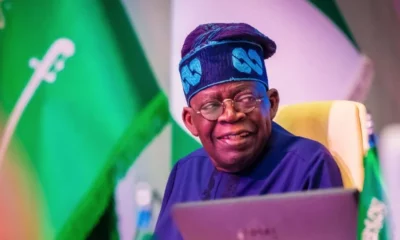

Nigerian govt to open student loan application portal May 24
-


Nigeria targets 10,000MW hydropower through sustainable power project
-


Nigeria’s inflation hits 28-year high of 33.69% in April
-


Nigeria: President Tinubu unveils 21 major initiatives
-


Nigeria: Govt approves SPV for 90,000km fibre optic cable
-


Shell investigates smoke at Gbaran oil plant in Nigeria
Strictly Personal
If I were put in charge of a $15m African kitty, I’d first deworm children, By Charles Onyango-Obbo
Published
4 days agoon
May 13, 2024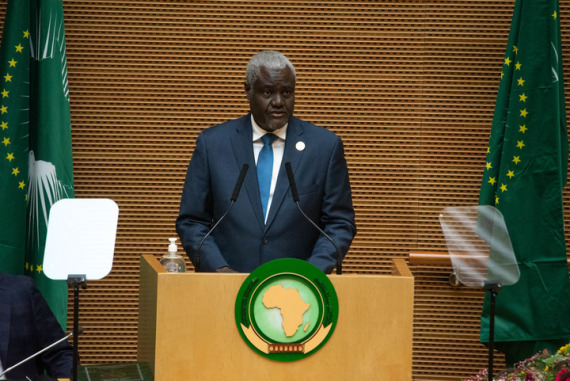
One of my favourite stories on pan-African action (or in this case inaction), one I will never tire of repeating, comes from 2002, when the discredited Organisation of African Unity, was rebranded into an ambitious, new African Union (AU).
There were many big hitters in African statehouses then. Talking of those who have had the grace to step down or leave honourably after electoral or political defeat, or have departed, in Nigeria we had Olusegun Obasanjo, a force of nature. Cerebral and studious Thabo Mbeki was chief in South Africa. In Ethiopia, the brass-knuckled and searingly intellectual Meles Zenawi ruled the roost.
In Tanzania, there was the personable and thoughtful Ben Mkapa. In Botswana, there was Festus Mogae, a leader who had a way of bringing out the best in people. In Senegal, we had Abdoulaye Wade, fresh in office, and years before he went rogue.
And those are just a few.
This club of men (there were no women at the high table) brought forth the AU. At that time, there was a lot of frustration about the portrayal of Africa in international media, we decided we must “tell our own story” to the world. The AU, therefore, decided to boost the struggling Pan-African New Agency (Pana) network.
The members were asked to write cheques or pledges for it. There were millions of dollars offered by the South Africans and Nigerians of our continent. Then, as at every party, a disruptive guest made a play. Rwanda, then still roiled by the genocide against the Tutsi of 1994, offered the least money; a few tens of thousand dollars.
There were embarrassed looks all around. Some probably thought it should just have kept is mouth shut, and not made a fool of itself with its ka-money. Kigali sat unflustered. Maybe it knew something the rest didn’t.
The meeting ended, and everyone went their merry way. Pana sat and waited for the cheques to come. The big talkers didn’t walk the talk. Hardly any came, and in the sums that were pledged. Except one. The cheque from Rwanda came in the exact amount it was promised. The smallest pledge became Pana’s biggest payday.
The joke is that it was used to pay terminal benefits for Pana staff. They would have gone home empty-pocketed.
We revive this peculiarly African moment (many a deep-pocketed African will happily contribute $300 to your wedding but not 50 cents to build a school or set up a scholarship fund), to campaign for the creation of small and beautiful African things.
It was brought on by the announcement by South Korea that it had joined the African Summit bandwagon, and is shortly hosting a South Korea-Africa Summit — like the US, China, the UK, the European Union, Japan, India, Russia, Italy, Saudi Arabia, and Turkey do.
Apart from the AU, whose summits are in danger of turning into dubious talk shops, outside of limited regional bloc events, there is no Pan-African platform that brings the continent’s leaders together.
The AU summits are not a solutions enterprise, partly because over 60 percent of its budget is funded by non-African development partners. You can’t seriously say you are going to set up a $500 million African climate crisis fund in the hope that some Europeans will put up the money.
It’s possible to reprise the Rwanda-Pana pledge episode; a convention of African leaders and important institutions on the continent for a “Small Initiatives, Big Impact Compact”. It would be a barebones summit. In the first one, leaders would come to kickstart it by investing seed money.
The rule would be that no country would be allowed to put up more than $100,000 — far, far less than it costs some presidents and their delegations to attend one day of an AU summit.
There would also be no pledges. Everyone would come with a certified cheque that cannot bounce, or hard cash in a bag. After all, some of our leaders are no strangers to travelling around with sacks from which they hand out cash like they were sweets.
If 54 states (we will exempt the Sahrawi Arab Democratic Republic for special circumstances) contribute $75,000 each, that is a good $4.05 million.
If just 200 of the bigger pan-African institutions such as the African Development Bank, Afrexim Bank, the giant companies such as MTN, Safaricom, East African Breweries, Nedbank, De Beers, Dangote, Orascom in Egypt, Attijariwafa Bank in Morocco, to name a few, each ponied up $75,000 each, that’s a cool $15 million just for the first year alone.
There will be a lot of imagination necessary to create magic out of it all, no doubt, but if I were asked to manage the project, I would immediately offer one small, beautiful thing to do.
After putting aside money for reasonable expenses to be paid at the end (a man has to eat) — which would be posted on a public website like all other expenditures — I would set out on a programme to get the most needy African children a dose of deworming tablets. Would do it all over for a couple of years.
Impact? Big. I read that people who received two to three additional years of childhood deworming experience an increase of 14 percent in consumption expenditure, 13 percent in hourly earnings, and nine percent in non-agricultural work hours.
At the next convention, I would report back, and possibly dazzle with the names, and photographs, of all the children who got the treatment. Other than the shopping opportunity, the US-Africa Summit would have nothing on that.
Charles Onyango-Obbo is a journalist, writer, and curator of the “Wall of Great Africans”. X@cobbo3
Strictly Personal
AU shouldn’t look on as outsiders treat Africa like a widow’s house, By Joachim Buwembo
Published
1 week agoon
May 9, 2024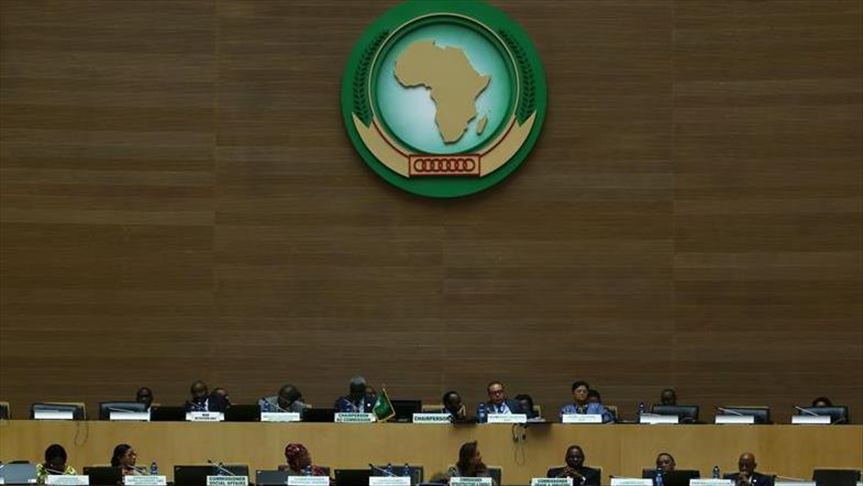
There is no shortage of news from the UK, a major former colonial master in Africa, over whose former empire the sun reputedly never set. We hope and pray that besides watching the Premier League, the managers of our economies are also monitoring the re-nationalisation of British Railways (BR).
Three decades after BR was privatised in the early to mid-nineties — around the season when Africa was hit by the privatisation fashion — there is emerging consensus by both conservative and liberal parties that it is time the major public transport system reverts to state management.
Yes, there are major services that should be rendered by the state, and the public must not be abandoned to the vagaries of purely profit-motivated capitalism. It is not enough to only argue that government is not good at doing business, because some business is government business.
Since we copied many of our systems from the British — including wigs for judges — we may as well copy the humility to accept if certain fashions don’t work.
Another piece of news from the UK, besides football, was of this conservative MP Tim Loughton, who caused a stir by getting summarily deported from Djibouti and claiming the small African country was just doing China’s bidding because he recently rubbed Beijing the wrong way.
China has dismissed the accusation as baseless, and Africa still respects China for not meddling in its politics, even as it negotiates economic partnerships. China generously co-funded the construction of Djibouti’s super modern multipurpose port.
What can African leaders learn from the Loughton Djibouti kerfuffle? The race to think for and manage Africa by outsiders is still on and attracting new players.
While China has described the Loughton accusation as lies, it shows that the accusing (and presumably informed) Britons suspect other powerful countries to be on a quest to influence African thinking and actions.
And while the new bidders for Africa’s resources are on the increase including Russia, the US, Middle Eastern newly rich states, and India, even declining powers like France, which is losing ground in West Africa, could be looking for weaker states to gain a new foothold.
My Ugandan people describe such a situation as treating a community like “like a widow’s house,” because the poor, defenceless woman is susceptible to having her door kicked open by any local bully. Yes, these small and weak countries are not insignificant and offer fertile ground for the indirect re-colonisation of the continent.
Djibouti, for example, may be small —at only 23,000square kilometres, with a population of one million doing hardly any farming, thus relying on imports for most of its food — but it is so strategically located that the African Union should look at it as precious territory that must be protected from external political influences.
It commands the southern entrance into the Red Sea, thus linking Africa to the Middle East. So if several foreign powers have military bases in Djibouti, why shouldn’t the AU, with its growing “peace kitty,” now be worth some hundreds of millions of dollars?
At a bilateral level, Ethiopia and Djibouti are doing impressively well in developing infrastructure such as the railway link, a whole 750 kilometres of it electrified. The AU should be looking at more such projects linking up the whole continent to increase internal trade with the continental market, the fastest growing in the world.
And, while at it, the AU should be resolutely pushing out fossil-fuel-based transportation the way Ethiopia is doing, without even making much noise about it. Ethiopia can be quite resolute in conceiving and implementing projects, and surely the AU, being headquartered in Addis Ababa, should be taking a leaf rather than looking on as external interests treat the continent like a Ugandan widow’s house.
Buwembo is a Kampala-based journalist. E-mail:buwembo@gmail.com
EDITOR’S PICK
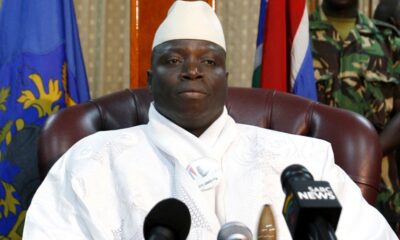

Gambian ex-minister convicted in Swiss court for crimes against humanity
In a landmark decision utilizing Europe’s universal jurisdiction, a Swiss court on Wednesday found a former Gambian government minister guilty...


Hope for persons with disability, as Muleya shares promising story of inclusivity in governance
Frederick John Muleya, a differently abled person based in Choma town, Southern Province, has shared some insights of changes being...


South Africa: President Ramaphosa signs major health bill two weeks before election
South Africa’s President Cyril Ramaphosa signed a measure into law on Wednesday that promises to offer universal health coverage, hailing...


Burna Boy, Asake, Davido, Tems, other Nigerian stars bag BET nominations
Thursday was a good day for Nigerian music stars, and especially the entertainment industry, as singers Burna Boy, Ayra Starr,...


Ethiopian marathon legend Bekele returns to Olympics after 12-year absence
After a 12-year absence on the international race circuit, Ethiopian marathon legend, Kenenisa Bekele, has announced that he will return...


Nigerian govt to open student loan application portal May 24
The Nigerian government has announced that the portal for the long awaited student loan scheme will open on May 24,...


Google relaunches Hustle Academy with AI focus to empower African SMBs
Google has relaunched the 2024 cohort of its Hustle Academy, a programme dedicated to accelerating the growth of small and...
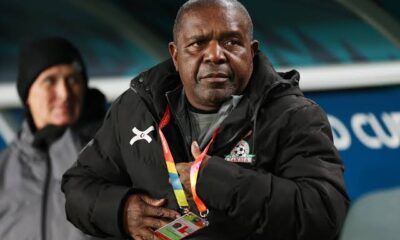

Zambia’s women national team coach face new sexual assault allegation
Zambia women national team coach, Bruce Mwape, is facing new allegations of sexual assault and misconduct at the 2023 Women’s...
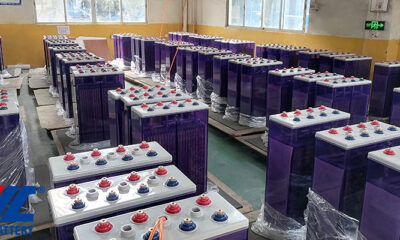

China’s Hailiang, Shinzoom to establish vehicle battery installations in Morocco
Hailiang and Shinzoom, Chinese car battery makers, will establish two separate operations in Morocco as the country strives to adapt...


Nigeria targets 10,000MW hydropower through sustainable power project
Nigeria’s Minister of Power, Adebayo Adelabu, says the federal government is targeting10,000 megawatts through its Sustainable Power and Irrigation Project...
Trending
-

 Tech2 days ago
Tech2 days agoLatin America’s biggest payment processor PayRetailers expands into Africa
-

 VenturesNow1 day ago
VenturesNow1 day agoNigeria’s inflation hits 28-year high of 33.69% in April
-

 Sports2 days ago
Sports2 days agoBotswanan Tebogo hits at Kenyan Omanyala over claims of being African sprint king
-

 Metro1 day ago
Metro1 day agoNigeria targets 10,000MW hydropower through sustainable power project


